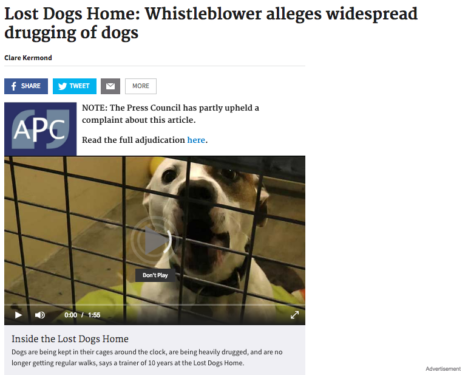Press Council censures The Age for Lost Dogs Home report, ruling it was misleading and unfair
The Age has been censured by the Australian Press Council headlined “It’s concrete pens and barking dogs”, ruling the Fairfax Media masthead failed to take reasonable steps to avoid a misleading and unfair report.
According to the Press Council’s ruling, the article said a dog at the Lost Dogs Home ‘Dino’ was treated for problems with impulse control and kept in a cage for five months with little exercise until “he was filmed for [a] video. Then he was killed”.
The article gave descriptions of the stays, medications and fates of six other dogs.


